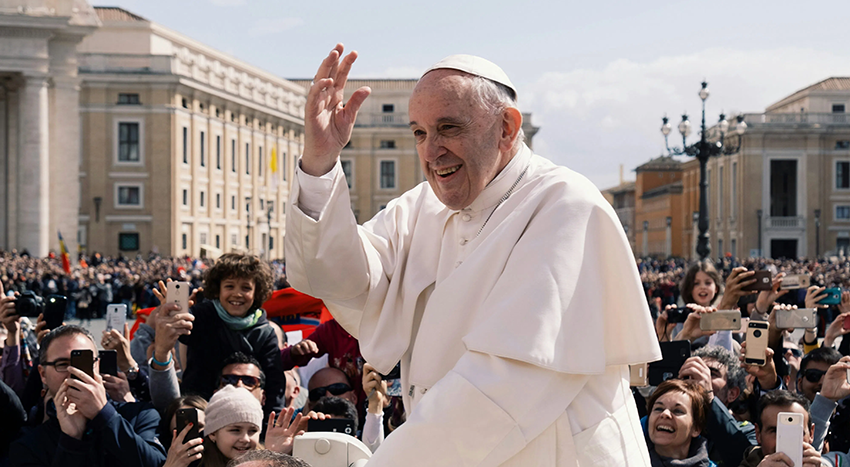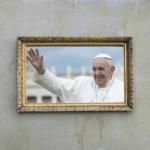The death of Pope Francis on Easter Monday (21 April) has not surprisingly led to much acclaim of his humble leadership, his concern for the poor and the marginalized.
The President of our own church, Rev. Charissa Suli, and the Moderator of NSW and ACT, Rev. Faaimata Havea Hiliau have contributed to that heartfelt chorus. Of course, there have been asides about what he has not been able to accomplish– but, that’s the church, isn’t it. It lives in imperfect times in the midst of eschatological hope.
There is an aspect of the Pope’s ministry that is perhaps not quiet so well known to members of the Uniting Church. These are his encyclicals – his pastoral letters — in published form and also on line where they are free of charge and very accessible in style.
In the Uniting Church we have plans, resolutions, mission statements, future directions, pastoral notes – and meetings. We do not have encyclicals – which is to our loss. The encyclicals of Pope Francis dealt with current issues facing the world and wove together biblical and theological reflection, spiritual concern and technical insight.
There are three encyclicals released from 2015 onwards that stand out. The first is the most widely accessed and reflected upon, Laudato Si’: On the Care of Our Common Home. It was released around the time of the Paris Climate Conference of Parties (2015). It represented an urgent appeal to defend / care for the Earth and ensure that due attention was given to the poor and those most affected by climate change. It described climate as a ‘common good’. It indicted ‘our throwaway culture’ and espoused an ‘integral ecology’ which wove together concern for the poor and the Earth. The encyclical was rightly planetary in scope rather than regional, hence in keeping with Earth System and climate scientists.
Laudato Si’ was addressed to all people of good will, irrespective of faith or no faith. It analysed in an intelligible way and surrounded that analysis with a reading of ‘the gospel op creation’, including ‘the gaze of Christ’. There has been much work done on climate change and theology over the years at UTC, but our emphasis on action, climate justice, slogans like ‘climate change is against my religion’ does not have a substantial theological underpinning. Our Assembly resolutions are surprisingly modest on that score.
In the lead-up to the COP Conference held in Dubai (2023) the Pope released another encyclical, Laudate Deum which was signposted as an ‘apostolic exhortation’.
The sub-title reads ‘To all people of good will on the climate crisis’. Its opening words are Praise God for All His Creatures. It was shorter than the earlier encyclical and carried much of the same argument – but with one difference. Pope Francis was now convinced that not enough had been done to address the problems he cited in 2015; time was fast running out and there was an increased scepticism as to whether the line of 1.5 deg Celsius rise on pre-industrial levels of climate could be held. Laudate Deum was to the point – and urgent.
In between these two encyclicals was another, Fratelli Tutti (2020). It may grate for some because of the Pope’s tendency to think of global solidarity and what he calls ‘social friendship’ through the language of ‘fraternity’ (though the Italian is used to describe ‘all humanity’). It did attract much criticism on these grounds. If one can look past that, though, here is a reading of the parable of [good] Samaritan and an exploration of what it means to be a ‘neighbour’. It shows forth the Pope’s commitment to peace and rejection of war. The first section is titled ‘without borders’.
Over the last several years I had the privilege of supervising the PhD thesis of Maina Talia, now the Minister of Climate Change, the Environment and Home Affairs for the people of Tuvalu. His thesis has just been published by Routledge under the heading of Tuvalu, Theology and the Geopolitics of Climate Change. There are only a handful of Roman Catholics on these vulnerable islands, but Maina Talia drew upon all three of these papal encyclicals in his work.
Assoc. Prof. Clive Pearson is a Session Lecturer at United Theological College












